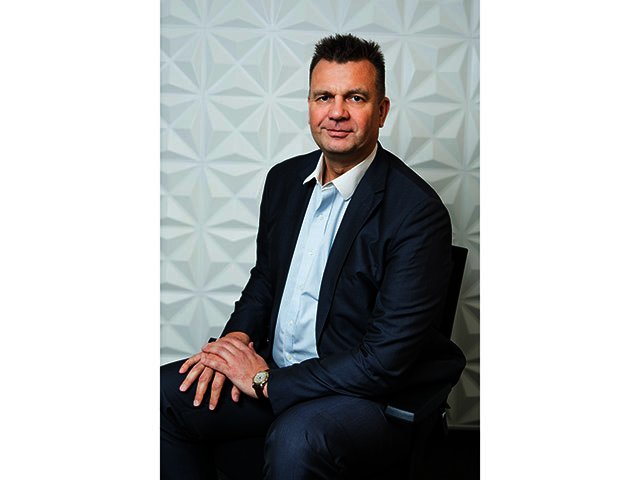Interview: Alexander Jenewein, Hitachi Vantara - Key to Digital Transformation
By Ryan Noik 28 March 2018 | Categories: interviews
BUSINESS NEWS SPONSORED BY:
Hitachi Vantara MD Alexander Jenewein, unpacked just why the company considers IoT to be the digital transformation end game , while warning against some of the common misconceptions around its use.
RN: Why do you consider IoT to be the digital transformation end game, as opposed to artificial intelligence, machine learning or cloud for that matter?
AJ: IoT has introduced elementary changes to the digital transformation journey. It not only transforms fundamental business processes, but also the way in which businesses interact with customers, and ultimately customer behaviour.
Machine learning and AI are extensions of that journey and they will undoubtedly bring a second wave of change.
Cloud, on the other hand, is more of an enabler than a digital transformation end game. Ultimately it does not change the behaviour of the customers themselves. Rather it provides consumers with a different consumption model and helps them bring down costs.
At the end of the day, IoT launched the digital transformation journey and is, therefore, elemental in continuing to drive that transformation forward.
RN: Do you see IoT as being the tip of the spear for the likes of cloud and AI? If so, please elaborate.
AJ: As mentioned above, cloud is simply a tool in the wider sense – it changes the way we consume IoT, services and processes. However, it’s not really the digital transformation driver anymore.
Again, AI and machine learning will eventually become an extension of IoT and the next big thing.
RN: How much do you think the viability of IoT is dependent on the market in which it is being launched – for example, with IoT solutions being perhaps more widely adopted in Europe or Asia as opposed to Africa?
AJ: The market itself determines IoT adoption in a number of different ways, including availability of devices and the way in which customers consume technology.
Also key is the degree of automation of business processes. As automation reduces costs, it encourages greater adoption of IoT. This plays a significant part in the adoption of IoT in a market like Europe, for example, where there is a higher level of automation.
RN: What do you think are some of the most prevalent misconceptions out there at present with regards to IoT and its applications for business?
AJ: The fundamental misconception is that a business can put some sensors out there in their work environment and that’s IoT. IoT is a lot bigger than simply introducing a few additional connected devices. It’s really about the transformation of business processes and the way in which the customer consumes technology.
RN: What is the state or maturity of IoT adoption specifically in South Africa?
AJ: From my point of view I think the market is mature enough to start implementing IoT strategy. There is, however, still a bit of hesitation in the market as organisations ask themselves how to get business value out of IoT. Companies are still trying to figure out how they can change their business models to adopt IoT, as well as the right foundational technology for IoT. They are ultimately still grappling with how to use IoT to create greater value for their customers.
Over the next 12 to 18 months I believe we will see a very rapid change in the IoT landscape. It will grow from a small wave to become a tidal wave.
RN: Can you give any other examples where Hitachi was involved in implementing an IoT solution that largely benefitted a business, either with its efficiencies, its production yield, or in curtailing expenses (or any other benefit not mentioned)?
AJ: Hitachi Vantara recently worked with an oil tanker business looking to increase the efficiency of its vessels. To achieve this, the ships were outfitted with all kinds of sensors from which data was analysed.
Through these various sensors, it was discovered that the layers of barnacles beneath the ships were slowing them down. By scrubbing the bottom of these ships on a more regular basis, the business not only saved fuel costs, but the ships were also able to operate faster.
The operation was a success both in terms of production efficiency and yield.
Most Read Articles

Have Your Say
What new tech or developments are you most anticipating this year?




